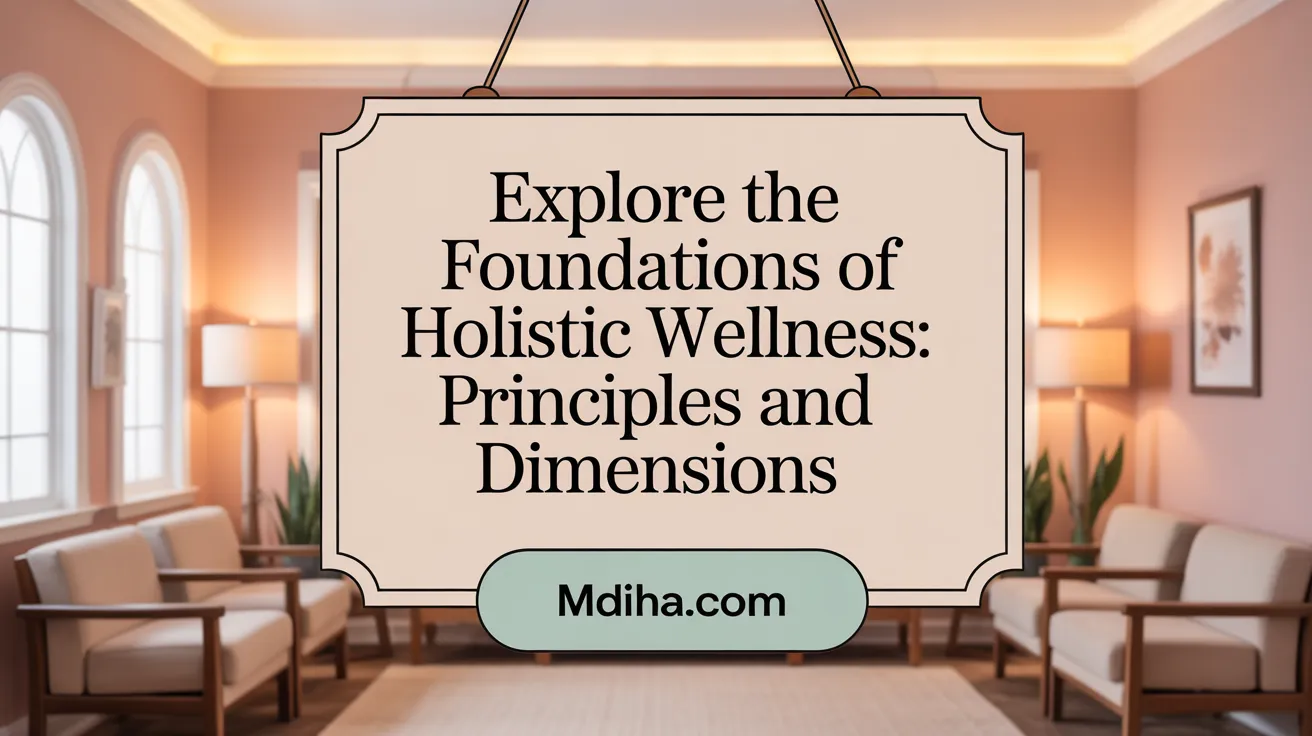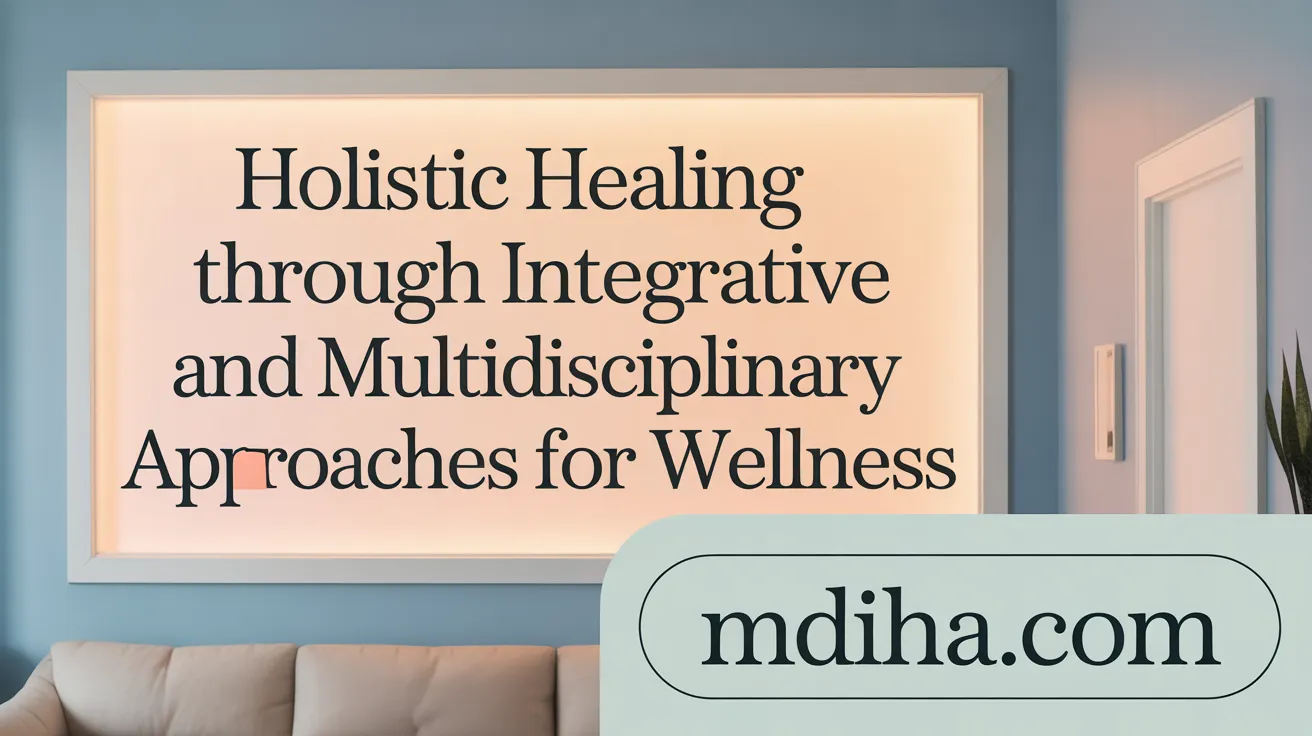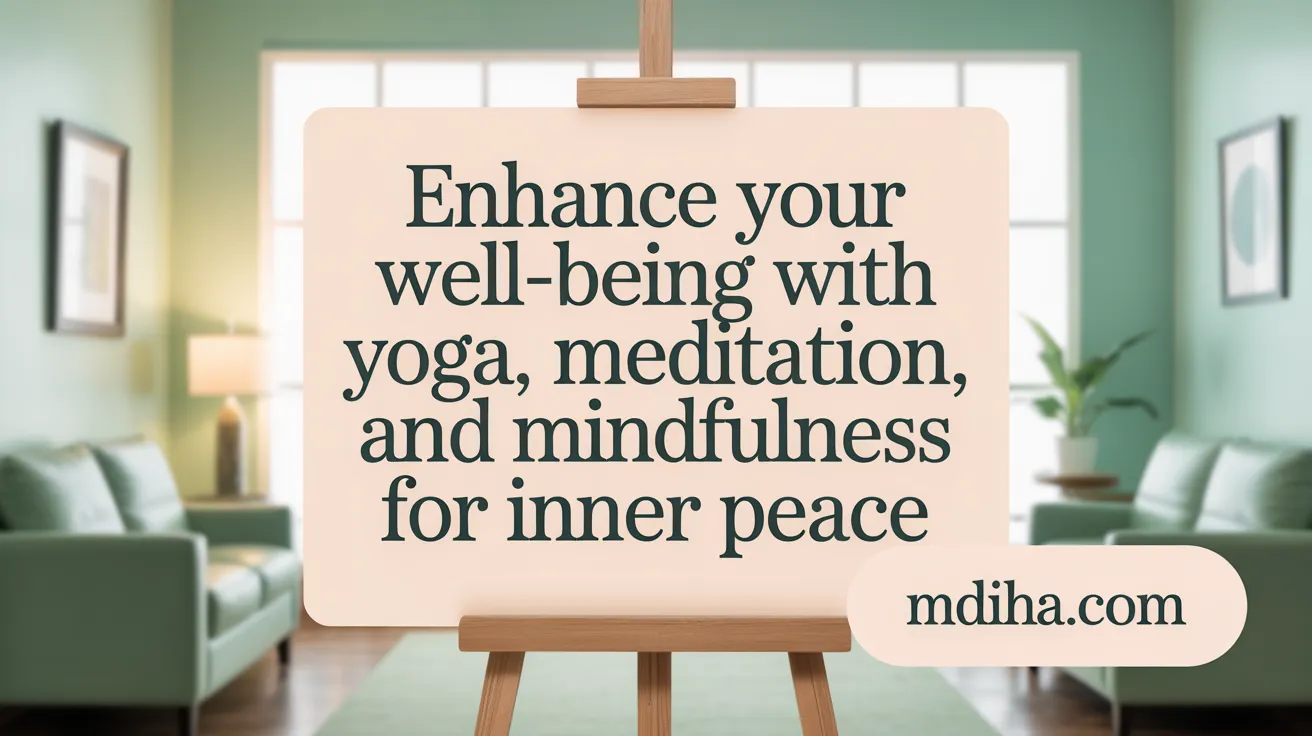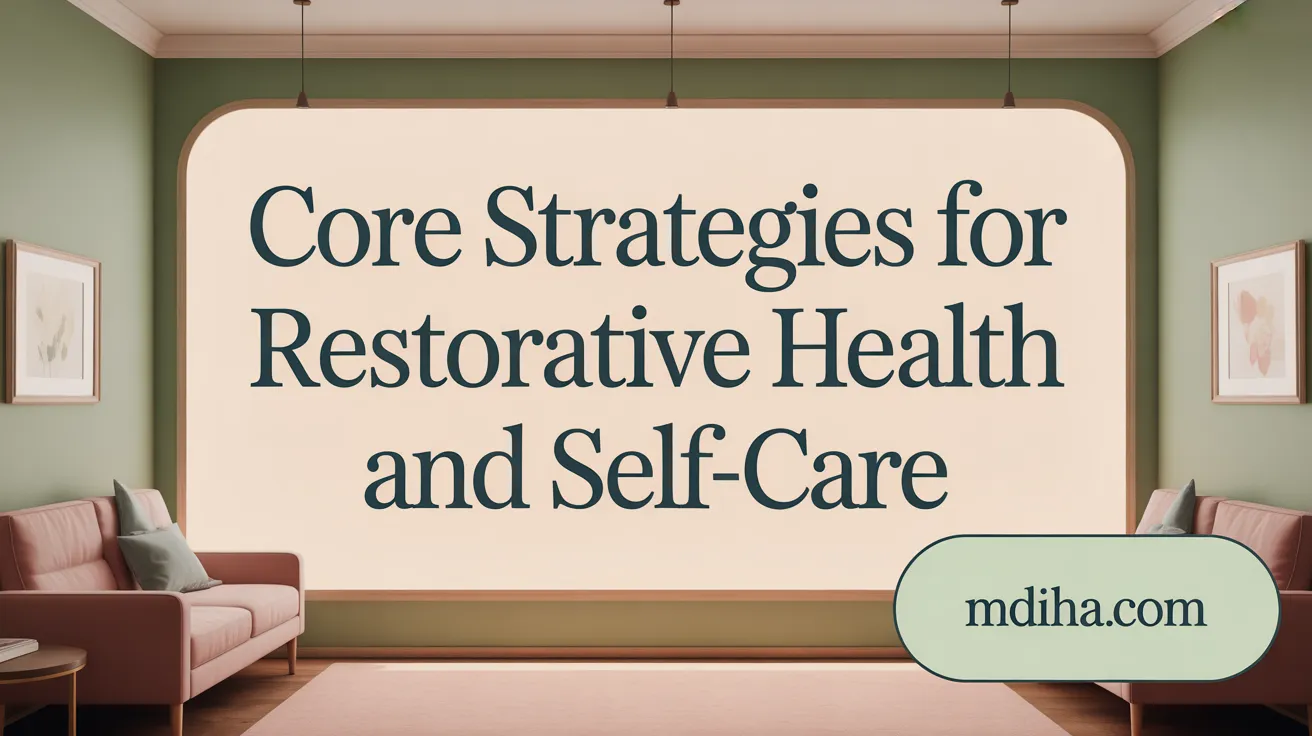Understanding Holistic Wellness and Its Foundations
Holistic wellness is a comprehensive health approach that views the individual as an interconnected whole, considering physical, mental, emotional, social, spiritual, and environmental factors. As we explore the emerging field of Valengerontology—a specialized approach to holistic health focused on aging and longevity—we gain valuable insights into integrating traditional and innovative wellness practices. This article delves into the core principles of holistic wellness, explores the multidimensional pillars supporting it, and highlights how Valengerontology provides a framework to achieve balanced, sustained well-being at all stages of life.
Defining Holistic Wellness: Principles and Dimensions

What is the meaning of holistic wellness?
Holistic wellness is an inclusive approach to health that considers the interconnectedness of all aspects of a person’s life, including physical, mental, emotional, social, spiritual, environmental, and cultural dimensions. It emphasizes treating the whole person rather than just addressing individual symptoms, recognizing that imbalances in any area can affect overall health. This approach involves a combination of healthy lifestyle practices such as proper nutrition, regular exercise, mindfulness, quality sleep, and spiritual connection. It often incorporates both conventional medicine and alternative or complementary therapies.
Holistic wellness aims for prevention, self-healing, and personal empowerment. It encourages individuals to actively participate in maintaining their well-being across various facets of life. The goal is to achieve a sustainable balance and fulfillment by addressing all factors influencing health, thus promoting overall well-being and resilience.
What are the common dimensions or pillars of holistic wellness?
The main pillars of holistic wellness typically include physical, emotional, social, intellectual, spiritual, environmental, occupational, and financial health. Some models expand further to include cultural aspects.
| Dimension | Focus | Description |
|---|---|---|
| Physical | Body health and fitness | Maintaining nutrition, exercise, sleep, and avoiding harmful habits |
| Emotional | Feelings and resilience | Managing stress, expressing emotions, and emotional stability |
| Social | Relationships and community | Building meaningful connections and support networks |
| Intellectual | Mental activity and growth | Engaging in learning, problem-solving, and creativity |
| Spiritual | Purpose and inner peace | Connecting with one's values, faith, or life purpose |
| Environmental | Connection to surroundings | Living sustainably and appreciating nature |
| Occupational | Satisfaction from work | Finding purpose and balance in career and daily tasks |
| Financial | Managing resources | Achieving financial stability and planning |
How are wellness dimensions interconnected?
These various aspects are deeply interconnected, with imbalances in one often affecting others. For example, poor physical health can influence emotional resilience and mental clarity, while spiritual well-being can support emotional stability and motivate healthy behaviors.
Achieving true holistic wellness requires balancing and nurturing all these dimensions. Addressing only one area may not lead to comprehensive health, whereas a combined focus enhances overall vitality, fulfillment, and resilience in daily life.
Valengerontology: A Specialized Framework for Holistic Aging and Longevity

What is Valengerontology?
Valengerontology is an emerging approach that focuses specifically on aging and longevity from a holistic perspective. It combines knowledge about physical, mental, emotional, and spiritual health to promote healthy aging. This field recognizes that aging is a complex process influenced by various interconnected factors, and it aims to optimize overall well-being throughout older adulthood.
How Does Valengerontology Integrate with Holistic Health?
This specialized framework aligns closely with the principles of holistic health. It emphasizes treating the person as a whole, not just managing age-related illnesses. Valengerontology incorporates practices such as balanced nutrition, regular physical activity, stress management, spiritual reflection, and social connection. By doing so, it supports the multi-dimensional aspects of health—physical, mental, social, environmental, and spiritual.
Addressing Aging through Multidimensional Wellness
The focus of valengerontology is on enhancing quality of life in older adults by maintaining or improving multiple wellness domains. Similar to other holistic approaches, it advocates for personalized strategies rooted in self-care, resilience, and community engagement.
This approach promotes proactive habits like consistent exercise routines, nutritious diets rich in protein and micronutrients, good sleep hygiene, and meaningful social interactions. It also encourages spiritual and emotional practices such as prayer, mindfulness, and gratitude, which resonate with biblical principles of wholeness.
Practical Applications
Practitioners in this field utilize validated tools and evidence-based strategies to measure health status across various domains. They foster collaborations with communities to address social determinants of health—such as housing and food access—and to co-create care plans.
By emphasizing a whole-person approach, valengerontology aims to prevent age-related decline, reduce healthcare costs, and promote autonomy and purpose for older adults. It encourages consistent, small lifestyle changes—like movement, healthy eating, and social involvement—that support longevity and vibrant aging.
| Wellness Domain | Focus Area | Strategies & Examples |
|---|---|---|
| Physical | Fitness, nutrition, sleep | Regular exercise, balanced diet, sleep routines |
| Mental & Emotional | Cognitive health, stress, resilience | Mindfulness, therapy, emotional regulation techniques |
| Spiritual | Connection, purpose, reflection | Prayer, meditation, spiritual retreats |
| Social | Relationships, community engagement | Social activities, volunteer work, family connections |
| Environmental | Living conditions, exposure to nature | Sustainable living, outdoor activities |
| Overall Well-Being | Resilience, purpose, life satisfaction | Goal setting, meaning-centered activities |
This holistic, multidimensional approach is designed to support healthy aging, emphasizing that longevity is not merely about lifespan but also about quality of life. The integration of physical vitality with emotional, spiritual, and social well-being underscores the importance of a balanced, interconnected approach in valengerontology.
Physical Wellness in Valengerontology: Exercise, Nutrition, and Sleep for Optimal Aging
What are the benefits of physical activity for older persons?
Regular physical activity is vital for maintaining overall health as we age. It supports physical, mental, and emotional well-being, helping to prevent age-related health issues such as cardiovascular disease, osteoporosis, and cognitive decline.
Engaging in a mix of aerobic, resistance, balance, and flexibility exercises can delay frailty, enhance mental sharpness, and improve mobility. This comprehensive approach promotes independence and quality of life in later years.
What are the nutritional needs of older adults?
Older individuals have specific dietary requirements to sustain health. Their needs include increased intake of protein, vitamin D, calcium, and vitamin B12 to help prevent muscle loss, maintain bone strength, and support nerve function.
Because metabolism slows and calorie needs decrease with age, focusing on nutrient-dense foods becomes essential. A diet rich in fruits, vegetables, whole grains, and lean proteins not only fuels the body but also helps prevent conditions like constipation and dehydration.
How does sleep quality affect health in seniors?
Poor sleep quality is linked to negative health outcomes including cognitive decline, physical disabilities, and a heightened risk of mortality. Sleep disturbances are common among older adults due to changes in sleep architecture and possible medical conditions.
Establishing good sleep habits, maintaining regular sleep routines, and managing sleep disorders can significantly enhance health, mood, and overall well-being. Adequate sleep supports immune function, energy levels, and cognitive function.
What types of exercise are suitable for aging populations?
Various forms of exercise benefit older adults. Aerobic activities like walking or swimming improve cardiovascular health. Resistance training helps preserve muscle mass and strength. Balance exercises such as tai chi prevent falls, while flexibility routines enhance joint mobility.
Implementing a balanced exercise program tailored to individual abilities encourages sustained activity and promotes resilience against age-related decline.
What are dietary recommendations for healthy aging?
A Diet focused on nutrient-rich foods is instrumental for aging well. Recommendations include consuming plenty of fruits and vegetables, whole grains, lean proteins, and healthy fats. Reducing intake of processed foods, sugars, and saturated fats also helps lower health risks.
Since calorie needs decline with age, portion control and mindful eating become important. Staying well-hydrated and managing issues like constipation or loss of appetite through diet adjustments are additional considerations to support vitality.
| Aspect | Focus Points | Additional Details |
|---|---|---|
| Physical Activity | Aerobic, resistance, balance, flexibility | Helps prevent frailty, improves mental health |
| Nutrition | Protein, vitamin D, calcium, B12 | Supports bones, muscles, and nerve health |
| Sleep | Routine, health management | Enhances cognitive and physical functions |
| Diet Recommendations | Fruits, vegetables, whole grains, lean proteins | Maintains energy, prevents chronic illnesses |
Adopting a holistic approach that combines regular exercise, proper nutrition, and quality sleep is essential for maximizing health and well-being in aging populations.
Integrative and Multidisciplinary Approaches to Holistic Wellness

How do multidisciplinary and integrative approaches enhance achieving holistic health?
Holistic wellness benefits greatly from the collaboration of various healthcare disciplines. These multidisciplinary approaches combine practices from physical, mental, emotional, and spiritual domains to create a complete picture of health.
By blending traditional therapies like acupuncture, herbal medicine, and massage with modern medical treatments, patients receive care tailored to their whole person. This integrative process ensures that all aspects of wellness are addressed, promoting not only physical healing but also reducing stress and supporting emotional balance.
Integrating evidence-based research and fostering strong communication among healthcare providers is crucial. It allows for personalized treatment plans that consider social, environmental, and psychological influences on health. Instead of treating just symptoms, these approaches aim to understand the root causes of health issues.
Such collaboration helps develop healthcare systems that value the interconnectedness of body, mind, and spirit. As a result, patients experience more effective, longer-lasting improvements. Overall, multidisciplinary and integrative strategies lead to a more connected, sustainable path to achieving holistic health, enhancing quality of life and well-being.
Holistic Modalities: Yoga, Meditation, and Mindfulness in Valengerontology

What roles do yoga, meditation, and other holistic modalities play in promoting holistic wellness?
Yoga, meditation, and related practices are fundamental in supporting a comprehensive approach to wellness, often referred to as holistic health. They serve to balance the physical, emotional, mental, and spiritual aspects of a person, aligning with the principles of integrative medicine.
Yoga, with origins dating back over 5,000 years in India, helps improve physical health by increasing flexibility, strength, and cardiovascular function. It also cultivates self-awareness and emotional resilience through mindful breathing and physical postures. Different styles of yoga, such as Hatha, Vinyasa, Iyengar, and Restorative, cater to various needs, making yoga accessible and adaptable for older adults seeking to maintain vitality.
Meditation, with roots in ancient spiritual traditions including Hinduism, Buddhism, and Taoism, complements yoga by promoting stress reduction, enhancing focus, and regulating emotions. Popular styles include Mindfulness Meditation, Loving-Kindness, and Transcendental Meditation, each offering specific benefits. Regular practice supports mental clarity, emotional stability, and better sleep, which are vital for holistic health.
These modalities significantly impact physical and mental health. For example, yoga improves respiratory health and posture, while meditation fosters emotional regulation and mental calmness. Both practices encourage a stronger mind-body connection, motivating healthier lifestyle choices such as nutritious eating, regular movement, and stress management.
By integrating these practices into daily routines, individuals can experience comprehensive benefits — from increased energy and resilience to better disease management and recovery. They foster a holistic approach that nurtures physical vitality, emotional well-being, and spiritual growth, ultimately supporting sustained health and longevity.
| Practice Type | Origins & Styles | Benefits | Additional Notes |
|---|---|---|---|
| Yoga | Over 5,000 years, various styles including Hatha, Vinyasa, Iyengar, Restorative | Flexibility, strength, cardiovascular health, emotional resilience | Emphasizes breath control and self-awareness |
| Meditation | Roots in Hindu, Buddhist, Taoist traditions; styles include Mindfulness, Loving-Kindness, Transcendental | Stress reduction, emotional regulation, focus, sleep improvement | Can be practiced in silent or guided forms |
| Mindfulness | Ancient roots; popular in modern therapy | Present-moment awareness, reduced anxiety | Often integrated into meditation practices |
This holistic approach aligns with contemporary health models emphasizing integrated care, which consider body, mind, and spirit equally essential for healthy aging and overall wellness.
Restorative Health and Self-Care: Core Elements of Holistic Wellness in Valengerontology

What are effective strategies and practices to integrate the different dimensions of holistic wellness?
Integrating the various aspects of holistic wellness requires a multi-faceted approach that addresses physical, mental, emotional, spiritual, social, and environmental health. Evidence-based practices tailored to individual needs can effectively promote overall well-being.
One effective strategy is combining conventional medicine with complementary therapies such as acupuncture, herbal medicine, mindfulness practices, yoga, and Tai chi. These practices not only support physical health but also nurture mental and spiritual resilience.
Personalized care is essential. Collaborating with healthcare providers who understand each person's unique health profile helps develop a comprehensive treatment plan that respects cultural contexts and personal preferences.
Lifestyle modifications are foundational to integration. These include adopting a balanced diet rich in whole foods, engaging in regular physical activity, ensuring restorative sleep, managing stress effectively, and fostering emotional stability.
Tools like the wellness wheel, which visually map out different health domains, assist individuals in recognizing areas needing attention and achieving balance.
The principles of integrative and traditional medicine guide practitioners and patients toward holistic health, emphasizing prevention and resilience.
Incorporating these strategies ensures sustainable health improvements that support the entire person, nurturing physical vitality, emotional stability, mental clarity, spiritual connection, and environmental harmony.
Biblical and Spiritual Perspectives on Holistic Wellness in Valengerontology
How do holistic wellness principles relate to spiritual and biblical healing perspectives?
Holistic wellness practices are deeply connected to spiritual and biblical healing viewpoints by emphasizing the unity of body, mind, and spirit. This interconnectedness aligns with biblical teachings that advocate caring for the entire person. Scripture highlights the importance of nurturing each aspect of health, such as Romans 12:2, which encourages renewing the mind, and 1 Corinthians 6:19-20, which reminds believers that their bodies are temples of the Holy Spirit.
The Bible also underscores trusting God's healing power. For instance, Psalm 147:3 speaks about God's ability to heal the brokenhearted and bind up wounds. These biblical principles inspire programs like those at Weimar University, which blend biblical truths with psychological strategies to promote healing across physical, emotional, and spiritual domains.
Practicing health through a biblical lens involves recognizing God's creation as a source of nourishment and healing—plants and natural remedies are valued for their divine purpose. Prayer and divine guidance are vital, helping individuals align their health choices with God's will.
This integrated approach fosters a comprehensive view of health, where faith and holistic wellness reinforce one another. Ultimately, biblical perspectives affirm that caring for the whole person reflects God's divine plan for healing and restoration, guiding believers toward physical, emotional, and spiritual well-being.
Integrating Valengerontology into a Holistic Wellness Lifestyle
Achieving holistic wellness through Valengerontology invites us to embrace a fully integrated view of health that honors the complexity of the human experience across aging and longevity. By uniting advances in physical health sciences, restorative practices, spiritual wisdom, and biblical principles, individuals are empowered to cultivate a resilient, balanced, and meaningful life. This integrative approach not only addresses immediate health concerns but also nurtures long-term vitality through sustainable lifestyle choices, community connection, and continual self-awareness. Ultimately, Valengerontology offers a dynamic framework for holistic wellness that inspires ongoing growth, healing, and flourishing in every dimension of the self.
References
- Examining Physical Wellness as the Fundamental Element for ...
- Holistic Approaches to Well-Being and Health | CHCM
- A Holistic Approach to Well-Being with Restorative Health.
- Holistic Approaches to Mental Wellness: Integrating Body, Mind, and ...
- The Benefits of Yoga & Meditation: A Holistic Approach to Wellness
- Holistic Health: A Guide to Better Health and Well-Being
- Is Holistic Wellness Biblical or New Age? - iBelieve.com
